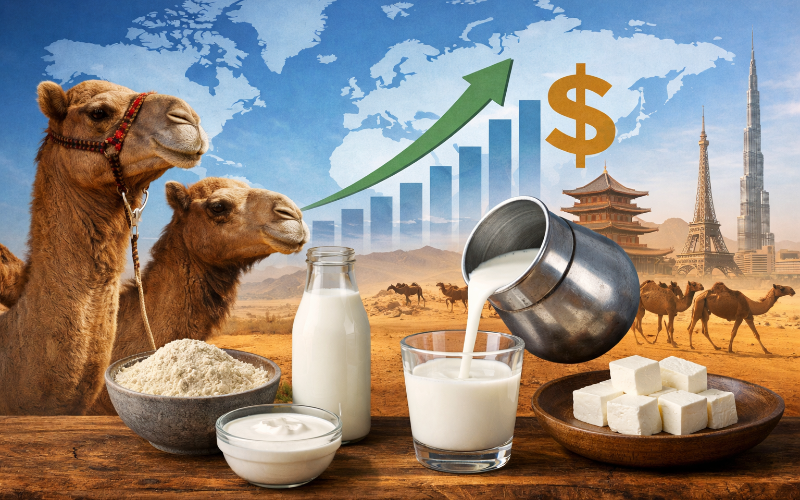China's Milk Production Decline Expected to Sustain Global Price Pressure
China, like many other major dairy-producing regions, is witnessing a decline in milk production, a trend attributed to rising production costs. This reduction in output is expected to maintain upward pressure on global dairy prices, according to Stefan Vogel, General Manager of Rabobank Research for Australasia.

Vogel pointed out that China's dairy sector has experienced significant growth over the past five years, driven by government efforts to boost domestic production. However, this expansion is beginning to slow as Chinese dairy farmers face higher costs, a challenge shared by their counterparts in regions like the U.S., South America, and the European Union.
Speaking at the New Zealand Institute of Primary Industry Management (NZIPIM) conference, Vogel noted, "We've seen a drop in milk production in several key regions around the world, which could ultimately benefit global trade as supply tightens." However, he cautioned that China's dairy imports may remain subdued until at least 2025, meaning that global prices could stay elevated for the foreseeable future.
Despite the current fluctuations in the global dairy market, Vogel remains optimistic about New Zealand's dairy sector, which he believes will continue to play a pivotal role in the country's agricultural landscape. He emphasized that New Zealand ranks among the top tier of efficient dairy producers globally, though it is not the absolute leader.
New Zealand's progress in sustainability was also highlighted as a positive development, with Vogel noting that the country is on track to meet its environmental goals and respond to consumer demands for more sustainable products. However, he warned against complacency, stating, "Farmers in New Zealand, like those in Europe, have been given some extra time to meet their targets, but this is not the time to relax. The focus needs to remain on meeting those targets to stay competitive."
Vogel also underscored the importance of New Zealand’s ongoing efforts to diversify its trade relationships and explore new markets, viewing these moves as essential for the country's long-term dairy market resilience.
Speaking at the New Zealand Institute of Primary Industry Management (NZIPIM) conference, Vogel noted, "We've seen a drop in milk production in several key regions around the world, which could ultimately benefit global trade as supply tightens." However, he cautioned that China's dairy imports may remain subdued until at least 2025, meaning that global prices could stay elevated for the foreseeable future.
Despite the current fluctuations in the global dairy market, Vogel remains optimistic about New Zealand's dairy sector, which he believes will continue to play a pivotal role in the country's agricultural landscape. He emphasized that New Zealand ranks among the top tier of efficient dairy producers globally, though it is not the absolute leader.
New Zealand's progress in sustainability was also highlighted as a positive development, with Vogel noting that the country is on track to meet its environmental goals and respond to consumer demands for more sustainable products. However, he warned against complacency, stating, "Farmers in New Zealand, like those in Europe, have been given some extra time to meet their targets, but this is not the time to relax. The focus needs to remain on meeting those targets to stay competitive."
Vogel also underscored the importance of New Zealand’s ongoing efforts to diversify its trade relationships and explore new markets, viewing these moves as essential for the country's long-term dairy market resilience.












